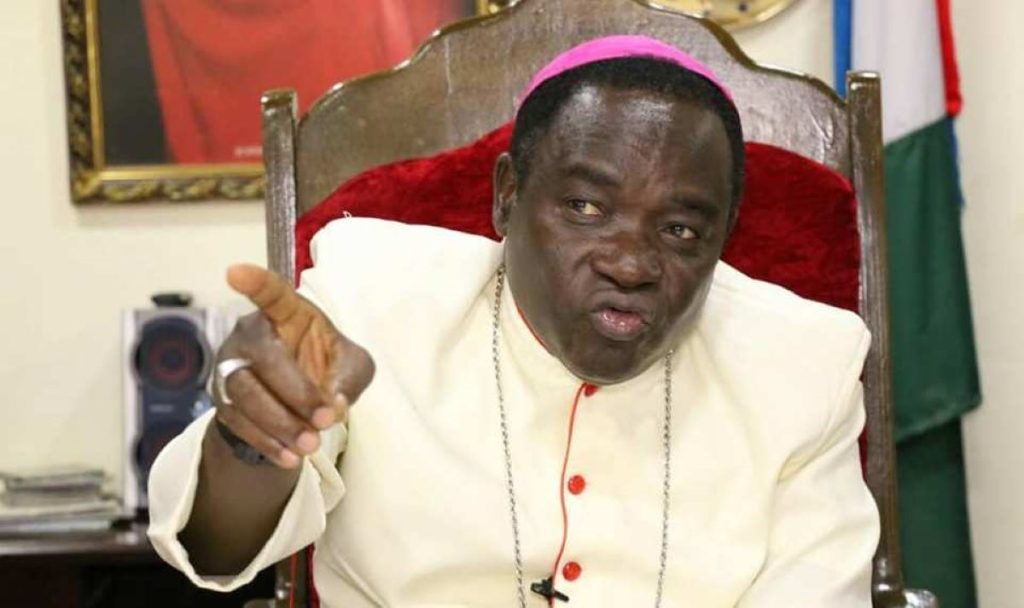Matthew Kukah, the Catholic bishop of the Sokoto Diocese, has blamed Nigeria’s propensity to choose darkness over light for the country’s lack of quantifiable progress since independence.
During his Christmas speech on Tuesday night at the Holy Family Cathedral Catholic Church in the Sokoto Diocese, Kukah highlighted that openness, responsibility, and honesty in politics, public service, and personal behaviour could greatly improve the nation’s current situation.
“The fact that we have chosen darkness over light is the reason Nigeria has not made any discernible or quantifiable development.
“What if we let the light shine on our public institutions, our politics, and our daily lives as individuals, communities, and a country? “Just think of what Nigeria would be like if we decided to choose light over darkness,” he remarked.
He emphasised that Nigeria’s path to greatness is still hampered by ethnicity, nepotism, and selfishness, and he challenged Nigerians to live by the Christian hymn’s message, “They will know we are Christians by our love.”

The primacy of religion and ethnicity in gaining access to opportunities, which frequently eclipses the notion of shared citizenship, was another issue raised by the bishop.
He pointed out that many people are driven to violence and annoyance by emotions of marginalisation, which further erodes national cohesion.
“We are still unable to embrace the ideals of our national anthem that says: ‘Though tribe and tongue may differ, in brotherhood we stand.’ Diversity is a divine gift. He suggested, “Let us make good use of it as a tool for national cohesion and mobilisation.”
Kukah also praised the Not Too Young to Run Bill’s passing in 2018, which made it possible for more young people to get involved in politics.
He did, however, recognise that there are still obstacles that prevent young people from actively participating in politics, such as the high costs of doing so and problems with internal democracy.
He also praised the federal government’s creation of the Nigerian Education Loan Fund and the passage of the Student Loan Act 2024.
He pointed out that these programs could increase prospects for young Nigerians, especially those who are pursuing technical and vocational skills.
The fact that the Act extends access beyond university students is noteworthy. To guarantee that poverty does not prevent anyone from obtaining a quality education, we expect that this project will be free from favouritism and bureaucratic obstacles,” Kukah stated.
In addition to urging the young people to seize these chances, he voiced alarm about the nation’s continued security issues, characterising them as a recurring barrier to stability.
However, Kukah urged all Nigerians to follow the road of love, light, and unity, emphasising that these principles are crucial to the advancement and development of the country.


